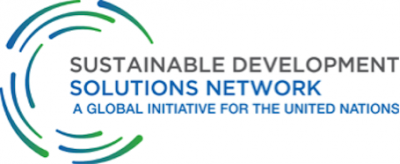Vatican to host international summit to tackle global issues

VATICAN CITY- Today we are facing two significant and interconnected emergencies: the climate change crisis and the new forms of slavery. The Encyclical Laudato si’ focuses on the consequences of climate change, which are particularly serious for those who are vulnerable and do not even benefit from the use of fossil fuels. Religious leaders, called to condemn the new forms of slavery, have highlighted the connection between the natural and human environment. As a matter of fact, global warming is one of the causes of poverty and forced migrations, favouring human trafficking, forced labour, prostitution and organ trafficking.
More than 30 million of people are victims of modern day slavery, trafficked in a market with estimated illegal profits of $US150 billion a year.
From the very beginning of his pontificate, Pope Francis has taken a firm stand against modern slavery, calling all communities to reject entirely and without exception all systematic deprivation of individual freedom for the purpose of personal and commercial exploitation. One of his initiatives, the Santa Marta Group, which he founded with Cardinal Vincent Nichols, brings together bishops and law enforcement agencies all over the world. It was this Group that highlighted the need for the local authorities to provide their support to their police chiefs in the fight against modern slavery.
On 2 December 2014 Pope Francis and other Christian, Muslim, Hindu, Buddhist, and Jewish leaders signed the ‘Joint Declaration of Religious Leaders Against Modern Slavery’ declaring their commitment to work together spiritually and practically to eradicate this crime against humanity and restore dignity and freedom to its victims.
On April 28th, 2015, during another meeting at the Casina Pio IV titled “Protect the Earth, Dignify Humanity” the Pontifical Academies, together with the UN and the religious leaders, committed to tackle these two global emergencies.
The active participation of local governments is crucial in the fight against this atrocious crime: mayors and local authorities must be called to act and play a role in ending this phenomenon. The Pontifical Academies of Sciences and Social Sciences are organising a 1-day workshop that will take place on 21 July 2015, during which 50 Mayors of the most important cities of the world will have the possibility of sharing this commitment in the presence of Pope Francis, whose attendance has been confirmed. The main objective of the Workshop is for mayors and local administrators to join the religious leaders in their appeal to the UN to consider modern slavery and human trafficking as a crime against humanity, and to put moral pressure on the UN to make sure that the new Sustainable Development Goals (SDGs) that will be approved by the UN in September 2015 and in the Paris December COP-21 Summit give enough weight to these two emergencies.
The Pope himself is to close the session.
On July 22nd, a symposium on Prosperity, People, and Planet: Achieving Sustainable Development In Our Cities is scheduled.
In September 2015 the world’s governments will agree upon a set of 17 Sustainable Development Goals (SDGs). The goals revolve around three themes: empowering people, eradicating poverty and protecting human dignity; shared prosperity and decent, fair jobs for all; and protecting the planet and tackling climate change. These 15-year goals will help guide the public’s understanding of complex sustainable development challenges, inspire public and private action, promote integrated thinking, and foster accountability. SDG 11 will call for Sustainable Cities and Human Settlements.
Urbanisation will be a defining trend over the next few decades. Today, 50% of the world’s 7 billion people live in cities, and, by 2050, this is expected to rise to approximately 70%. Cities are currently home to extreme deprivation and environmental degradation, with around one billion people living in slums. At the same time, roughly 75% of global economic activity is urban, and as the urban population grows, so will the urban share of global GDP and investments.
This special symposium will bring together local government leaders and other urban development practitioners to consider how cities can drive the implementation of the new sustainable development agenda and forge a roadmap for its fulfillment. Mayors and other participants will consider the challenges of social inclusion, economic development and environmental preservation including cities’ carbon commitments. Furthermore, they will reflect upon the governance arrangements and financial architecture that will empower cities to accelerate the SDG implementation process.
Taking place just 2 months before Heads of State and Government gather in New York to approve the SDGs and 4 months before the climate negotiations in Paris, this event will provide a crucial opportunity for city leaders to start considering clear, quantifiable commitments which demonstrate their dedication to a fairer, more sustainable world.
By Gianfranco Nitti


